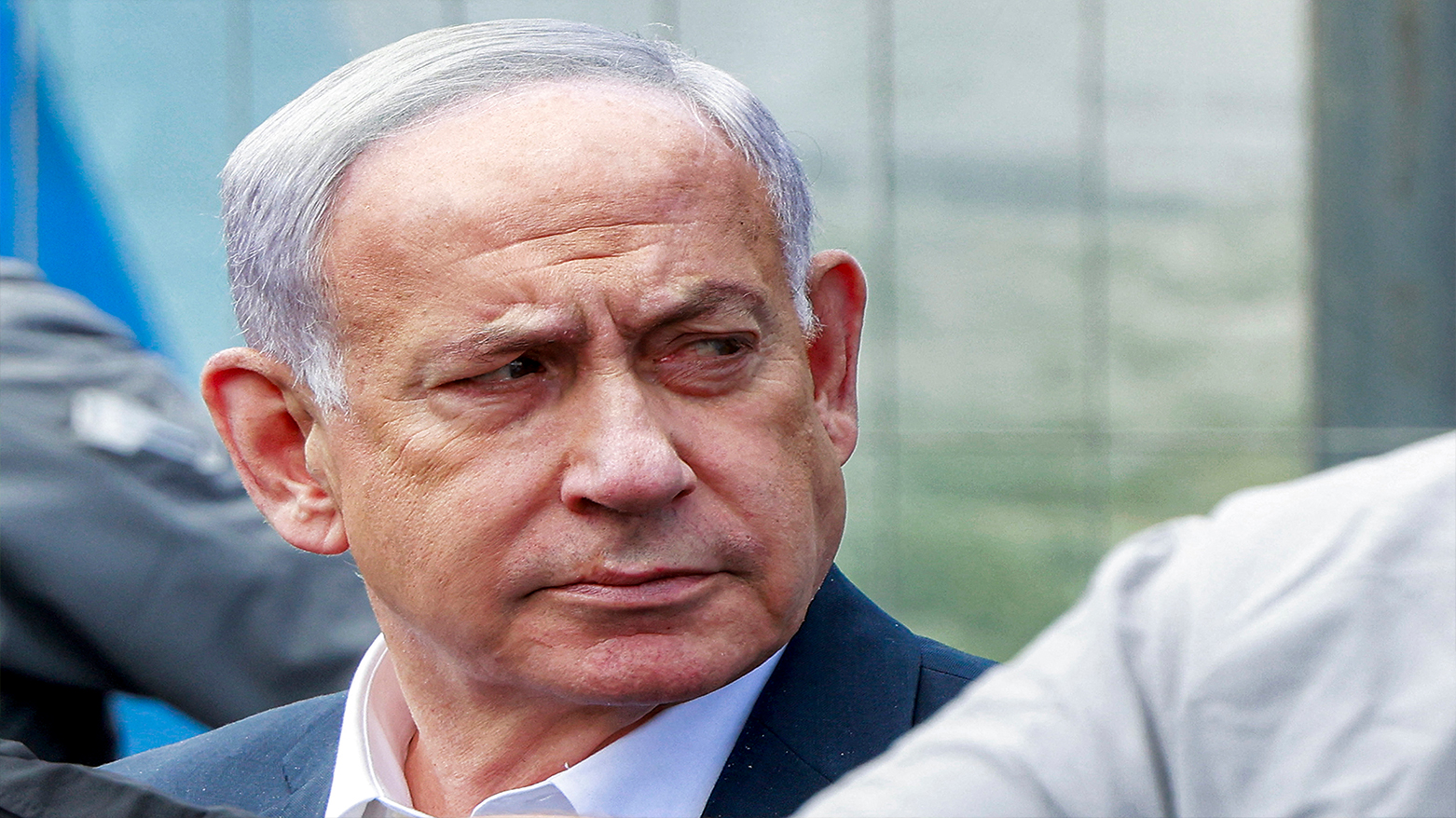Netanyahu Warns Qatar After Doha Strike as Israel Expands Regional Escalation
Netanyahu warns Qatar after Israeli strike in Doha targeting Hamas leaders, accusing Doha of harboring terrorists. He compared the operation to the US post-9/11 response and vowed to hold nations sheltering militants accountable.

ERBIL (Kurdistan24) – Israeli Prime Minister Benjamin Netanyahu issued a direct warning to Qatar on Wednesday, one day after Israeli warplanes carried out an unprecedented strike in Doha targeting Hamas’s political leadership. The move, which has drawn widespread international condemnation, coincided with a dramatic widening of Israel’s war, as strikes also pounded Yemen, Syria, Lebanon, and Gaza within a 24-hour period.
In a video message posted to the official account of the Israeli Prime Minister’s Office on X, Netanyahu drew a parallel between the September 11, 2001 attacks on the United States and Israel’s October 7 assault by Hamas.
“Tomorrow is September 11th. We remember September 11th. On that day, Islamist terrorists committed the worst savagery on American soil since the founding of the United States,” Netanyahu said.
“We also have a September 11th. We remember October 7th. On that day, Islamist terrorists committed the worst savagery against the Jewish people since the Holocaust,” he continued.
Comparing Israel’s operation in Doha to the U.S. manhunt for al-Qaeda, Netanyahu said Israel had “acted along those lines” by striking Hamas leaders on Qatari soil. He accused Doha of granting Hamas “safe haven, financing, and sumptuous villas,” insisting that “countries should applaud Israel for standing up to these same principles.”
“I say to Qatar and all nations who harbor terrorists,” Netanyahu declared, “you either expel them or you bring them to justice, because if you don’t, we will.”
Prime Minister Benjamin Netanyahu:
— Prime Minister of Israel (@IsraeliPM) September 10, 2025
“Tomorrow is September 11th. We remember September 11th. On that day, Islamist terrorists committed the worst savagery on American soil since the founding of the United States. pic.twitter.com/KDZcTXRsK0
Before Netanyahu’s statement today, the Israel Defense Forces (IDF) confirmed a new front in the conflict, announcing that its air force had struck Houthi-controlled sites in Yemen’s capital Sanaa and Al-Jawf province.
The IDF said its targets included “military camps used for intelligence and planning, a fuel storage facility for operations, and the Houthis’ Public Relations Department responsible for propaganda and psychological terror.”
According to AFP reporters on the ground, explosions struck buildings linked to Houthi armed forces in Sanaa. Yemen’s Houthi-run health ministry reported at least 35 dead and more than 100 wounded, with the toll expected to rise as rescue efforts continued.
Israel described the raids as a direct response to repeated Houthi attacks involving drones and surface-to-surface missiles aimed at its territory, accusing the Iran-backed movement of expanding the regional war.
The strikes in Yemen followed Tuesday’s unprecedented Israeli attack in Doha, where powerful explosions shook the Qatari capital. Israel later confirmed it had carried out a “precise strike” targeting Hamas leaders during a meeting.
Prime Minister Netanyahu declared the operation “wholly independent” and under Israel’s full authority. Qatar, however, denounced the bombing as a “criminal assault” and a “blatant violation of sovereignty,” warning of grave consequences for regional security.
The attack prompted swift condemnation from across the Middle East and beyond. Saudi Arabia, Iraq, Kuwait, the UAE, the Palestinian Authority, and the United Nations all sharply rebuked the strike. Pope Francis called the situation “extremely dangerous,” while international observers warned that the war risked spiraling into a broader regional conflict.
Alongside the Doha operation, Israeli jets struck targets in Syria near Latakia, Homs, and Palmyra on Tuesday. State media reported explosions at a Syrian Air Force installation southeast of Homs, while Damascus condemned the raids as a “flagrant violation of sovereignty and international law.”
In Lebanon, an Israeli drone strike south of Beirut targeted a vehicle near Jiyyeh, injuring a Hezbollah member. The incident followed a wave of Israeli strikes in eastern Lebanon that killed at least five people a day earlier.
Meanwhile in Gaza, the Israeli military stepped up preparations for a full-scale assault on Gaza City. IDF spokesman Avichay Adraee urged residents to evacuate south to the designated Al-Mawasi “humanitarian zone,” warning that Israeli forces were determined to dismantle Hamas “with great force.”
Netanyahu and Defense Minister Israel Katz jointly declared that Hamas leaders would be eliminated, calling recent strikes on residential towers in Gaza “a prelude” to a broader offensive.
With Israeli operations now spanning five arenas—Qatar, Yemen, Syria, Lebanon, and Gaza—within 24 hours, regional observers warn that the conflict has entered its most dangerous phase since October 7.
While Netanyahu defended the Doha strike as a parallel to America’s campaign against al-Qaeda, Qatar and other regional powers have insisted it represents a grave violation of sovereignty.
The scope of Israel’s actions has alarmed allies and adversaries alike, raising urgent questions about whether international diplomacy can contain the widening confrontation—or whether the region is sliding toward a broader and more destructive war.